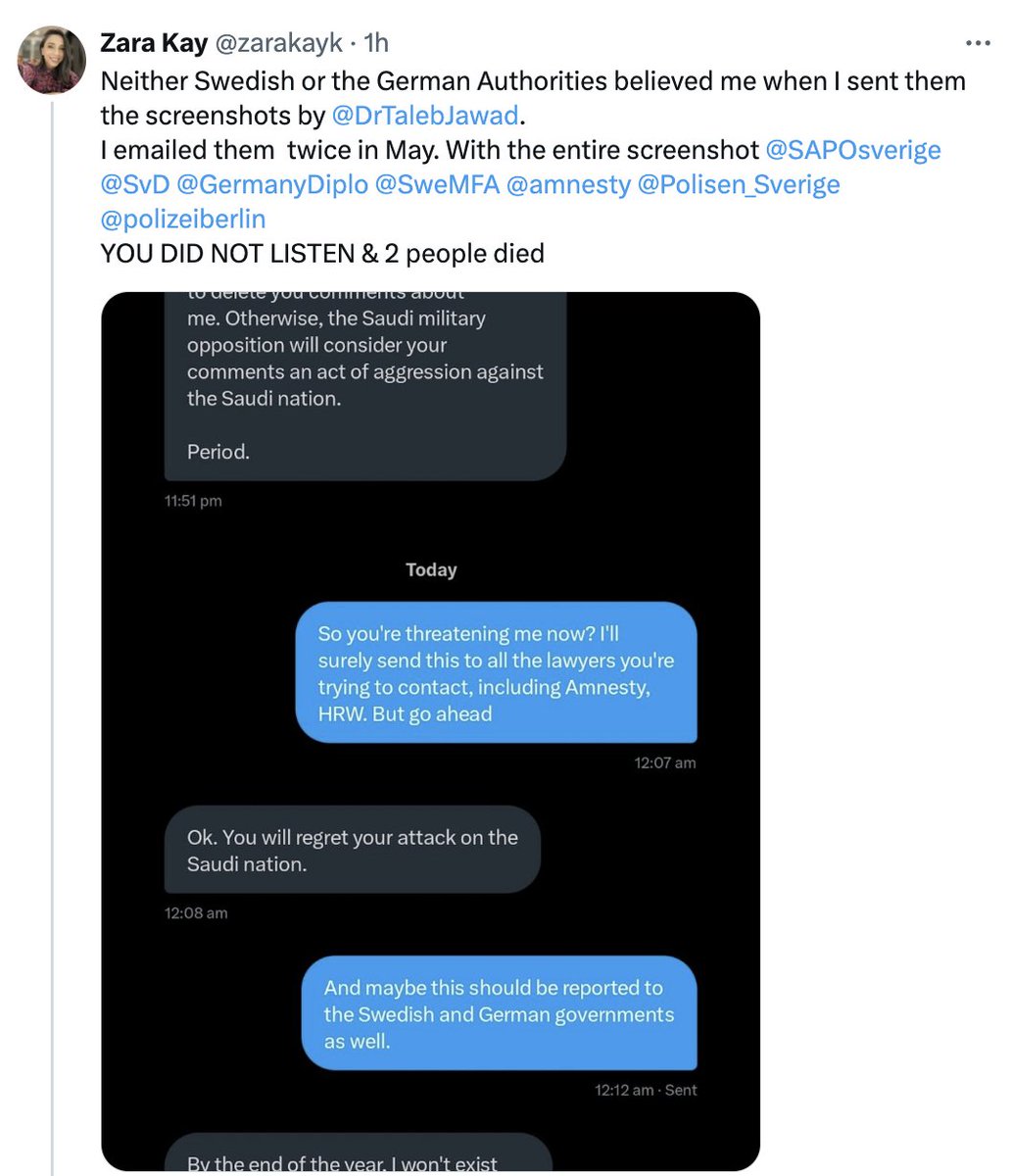🧵[1/13] After the latest massacre of the Druze by Al Jolani's jihadists in southern Syria, Mosab Hassan Youssef—the son of a Hamas leader—shared an image I had nearly forgotten. It was Mohamed Elomar, the Australian Muslim who left his country to join ISIS and decapitate "infidels" for Allah. In the 2021 photo, Elomar stands triumphant, clutching two severed heads and grinning like a demon. Mosab captioned the image with a chilling verse from the Quran, Al-Anfal 8:12: 'I will cast terror into the hearts of the disbelievers. So strike their necks and strike their fingertips.'
And once again, the same questions surged: How can anyone—after 47,000 Islamic terrorist attacks since 9/11—still believe that Islam is a religion of peace? What happened to common sense? More urgently: what happened to our survival instinct?
And once again, the same questions surged: How can anyone—after 47,000 Islamic terrorist attacks since 9/11—still believe that Islam is a religion of peace? What happened to common sense? More urgently: what happened to our survival instinct?
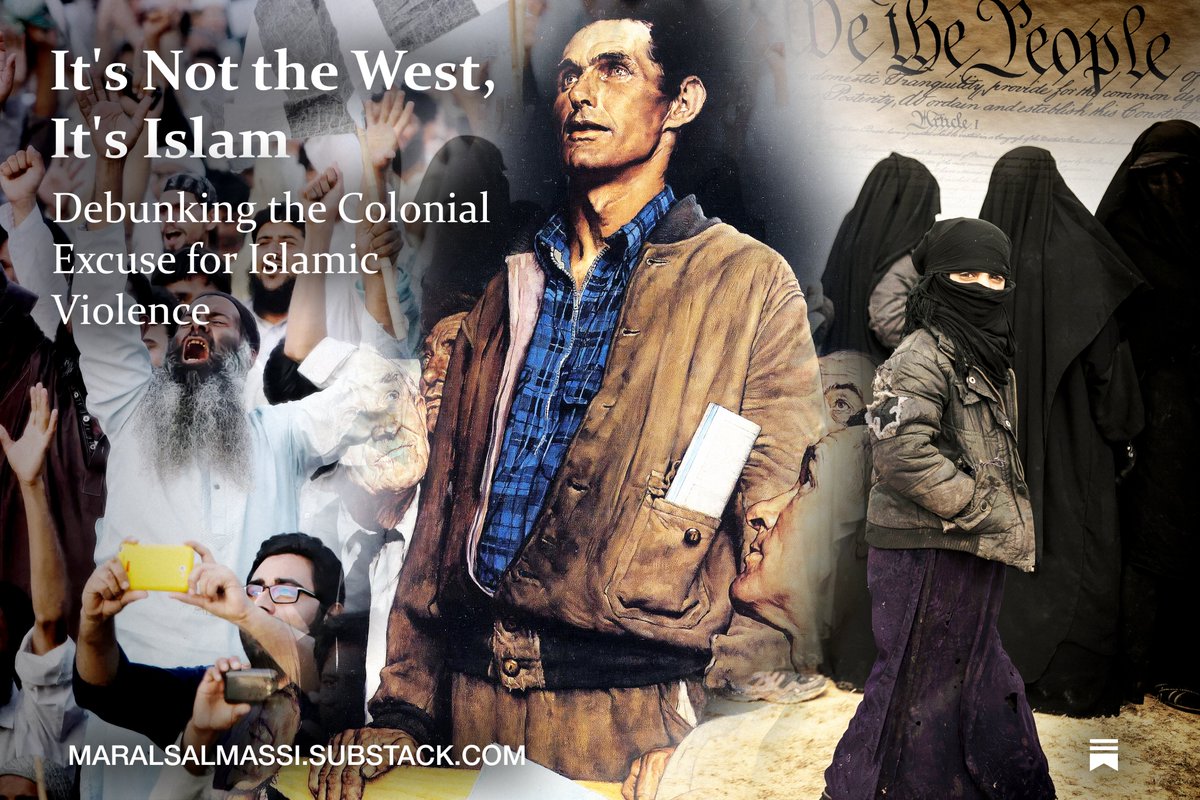
[2/13] We are told—almost ritually—that Islam is merely misunderstood. Yet its sweeping claim to govern everything from diet to sex to the afterlife rests on two deeply problematic foundations: the idea that Muhammad was the perfect man, and that the Quran is the perfect book. If the Quran is infallible and final, why does it produce such radically different interpretations—from quietist scholars to bloodthirsty jihadists? Why is the Islamic world so persistently trapped in cycles of violence and so uniquely resistant to reform? These aren't abstract theological puzzles. They are civilizational and moral failures—and they demand reckoning.
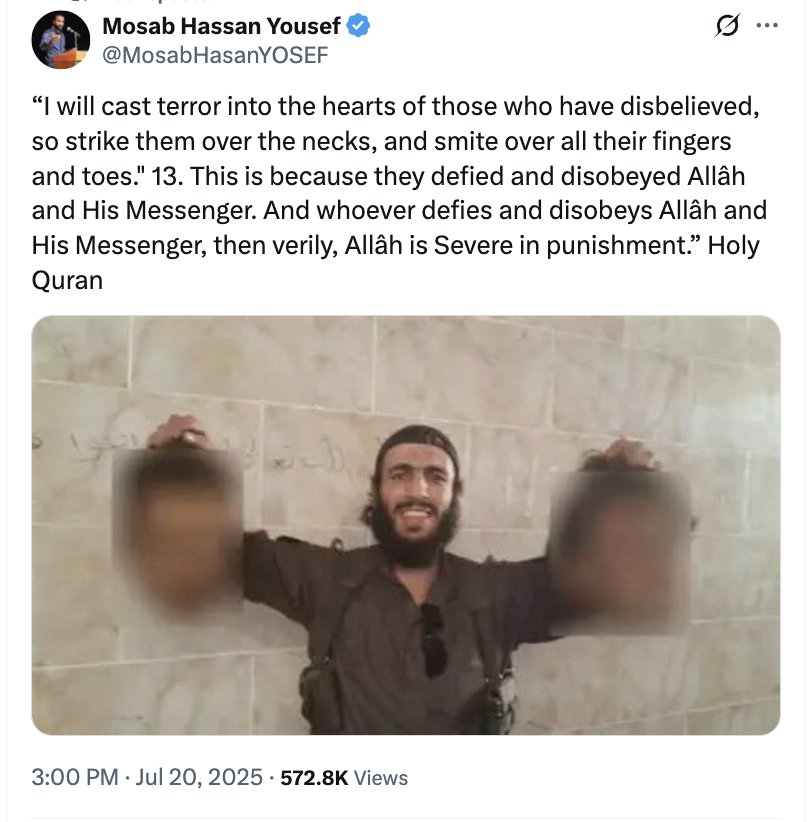
[3/13] The so-called "misunderstanding" is a product of a fundamental paradox within Islamic scripture and tradition. The Quran is not a coherent moral code—it is a calculated fusion of contradictions. It preaches peace while commanding war, offers tolerance while demanding submission. The doctrine of naskh, or abrogation, deepens this ambiguity by allowing the later militant verses from Muhammad's Medina period to override the earlier, more conciliatory ones from Mecca—mirroring the prophet's radical transformation from an illiterate merchant and marginal preacher into a sword-wielding political warlord.
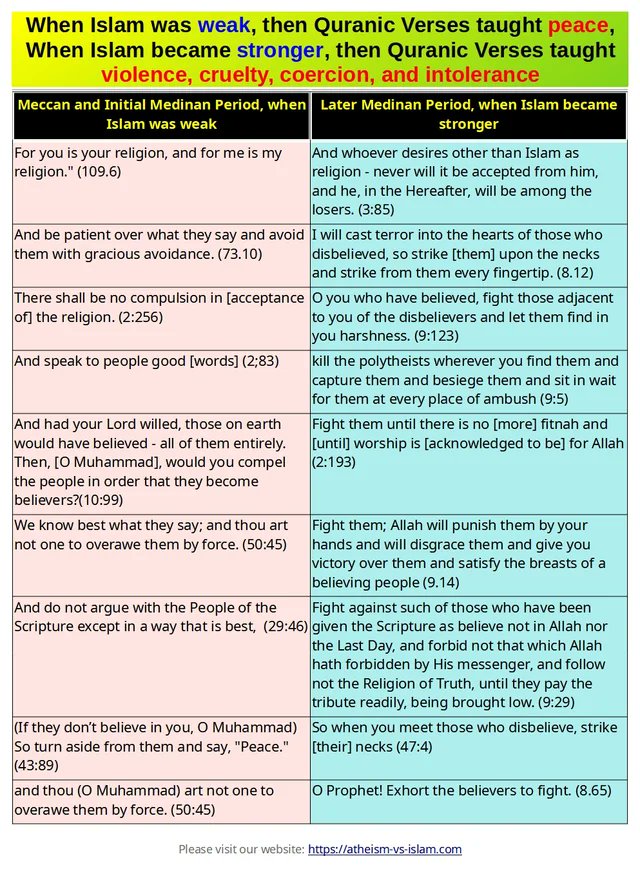
[4/13] Today, when moderates cite "There is no compulsion in religion" (2:256), radicals counter with "Kill them wherever you find them" (2:191) or "Strike their necks" (47:4)—and both are equally valid within the Islamic tradition. This theological elasticity allows Islam to be both defended and weaponized, depending on context and intent. For the Western observer, it produces cognitive paralysis. However, this is no contradiction—it is a strategy, and the Quran's murky origins reveal its depth. For centuries, multiple divergent versions circulated throughout the Islamic world, and the process of standardization did not conclude until the 20th century. Yet, Islamic orthodoxy insists the Quran has been preserved—letter for letter, word for word—since the time of Muhammad. But this is theological fiction.

[5/13] By the medieval period, Islamic scholars had cataloged hundreds of variant readings, or qira'at, differing in conjugation, grammar, vocabulary, and even legal or theological meaning—some altered core interpretations of doctrine and law. By the 10th century, the scholar Ibn Mujahid attempted to impose order by canonizing seven "official" readings—later expanded to ten—effectively narrowing the range of acceptable variation.
Yet even this was not the end of the matter. In 1924, Al-Azhar University in Cairo, under the authority of King Fuad I, published the most recent—and ultimately final—standardized version of the Quran, based on the Hafs version of the qira'at. This "Cairo edition" became the default across much of the Islamic world—a modern editorial patchwork crafted for political convenience and in service of Arab nationalism.
Yet even this was not the end of the matter. In 1924, Al-Azhar University in Cairo, under the authority of King Fuad I, published the most recent—and ultimately final—standardized version of the Quran, based on the Hafs version of the qira'at. This "Cairo edition" became the default across much of the Islamic world—a modern editorial patchwork crafted for political convenience and in service of Arab nationalism.
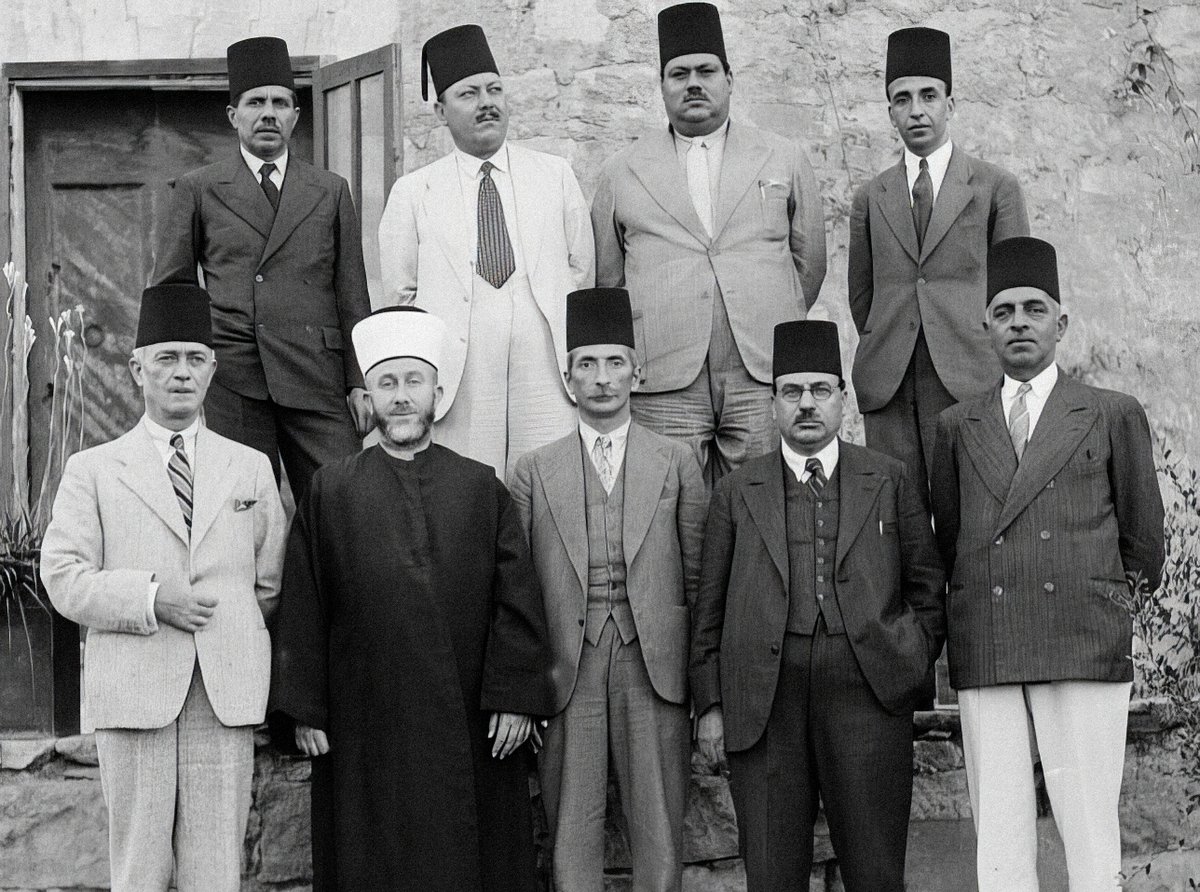
[6/13] Far from being a pristine divine transmission, the Quran—so often described as perfect down to every word and letter—was not even written down during Muhammad's lifetime. It was first compiled from oral recitations and scattered fragments, then manipulated, edited, and eventually standardized centuries later—not for religious clarity, but for state control.
And this is precisely where the impossibility of reform takes root.
Unlike Christianity, which fractured under the weight of internal critique and was eventually tempered by secular humanism, Islam has never relinquished its unity of faith, law, and power. As a result, interpretation is inherently political—whoever holds authority defines "true Islam."
And this is precisely where the impossibility of reform takes root.
Unlike Christianity, which fractured under the weight of internal critique and was eventually tempered by secular humanism, Islam has never relinquished its unity of faith, law, and power. As a result, interpretation is inherently political—whoever holds authority defines "true Islam."
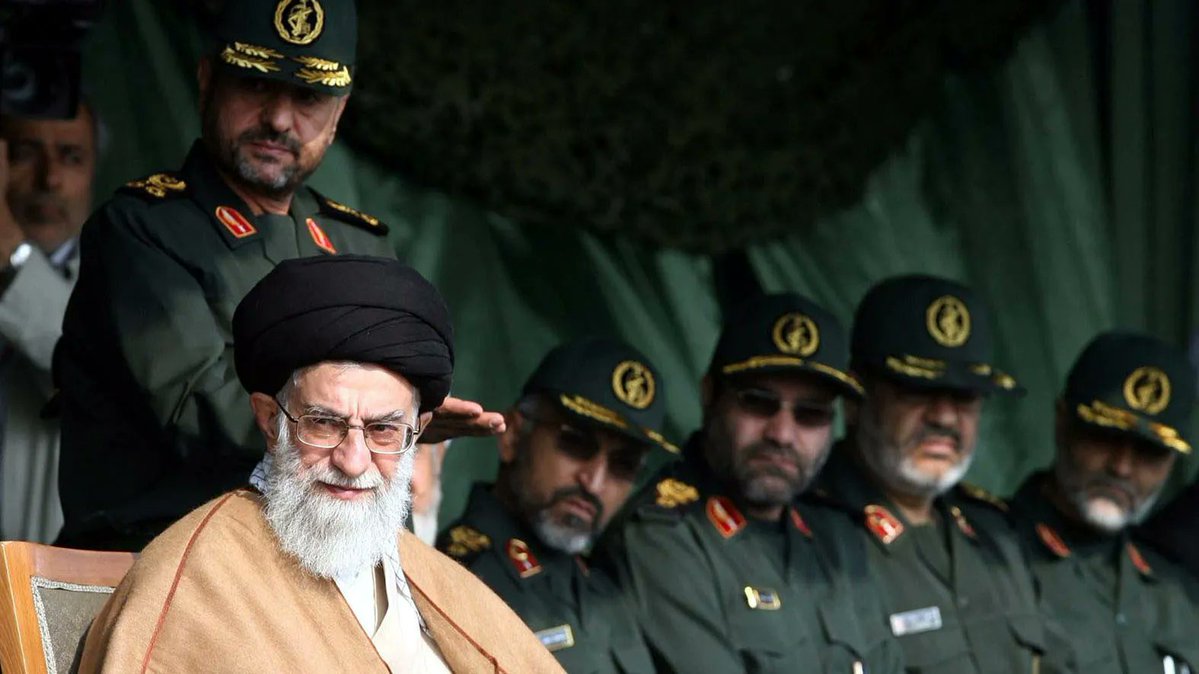
[7/13] Where Western reform gave rise to pluralism, individual conscience, and the separation of church and state, every so-called Islamic reform has only driven the faith deeper into literalism, puritanism, and political extremism. The Wahhabi movement in the 18th century, often described as a reformist revival, was a brutal campaign to purge Islamic practice of local culture, mysticism, and flexibility. Its result was religious fascism, and its ideological legacy lives on in Saudi Arabia and the terrorism it exported. The 20th-century Muslim Brotherhood emerged under the banner of modernism, but its real legacy was the Islamization of politics and the politicization of Islam. Its children are Hamas, Erdogan's neo-Ottoman project, and countless jihadist movements. Postcolonial Salafism, buoyed by Gulf oil money, cloaked itself in authenticity while erasing centuries of intellectual pluralism and replacing it with desert dogma.
Reform in Islam, in other words, does not mean progress. It means purification. It strips away mysticism, hybrid identities, and regional adaptations in favor of the imagined austerity of seventh-century Arabia. It is not reform—it is re-Salafization. And this is precisely why the Islamic world remains so violent.
Reform in Islam, in other words, does not mean progress. It means purification. It strips away mysticism, hybrid identities, and regional adaptations in favor of the imagined austerity of seventh-century Arabia. It is not reform—it is re-Salafization. And this is precisely why the Islamic world remains so violent.

[8/13] While the rest of the world evolved, Islam preserved its theopolitical structure. Its law—Sharia—is still regarded as divine and non-negotiable. Its ideal polity—the Caliphate—is not a relic of the past, but a sacred objective. Its core identity is not individual and rights-based, but collective and honor-bound. Every attempt at modernization in the Islamic world was imposed by colonial force or secular autocrats—but never truly internalized. And the moment external pressure subsided, Islam reasserted itself—not as personal faith, but as a total system. The vacuum left by colonial withdrawal was never filled by liberal democracy, but by jihadism, which presented itself as both resistance and restoration.
This becomes all the more apparent when comparing the Islamic world with other postcolonial societies. India, Brazil, Mexico, South Korea, and even parts of Sub-Saharan Africa—each of these nations endured colonialism, slavery, and exploitation. And yet, they built democracies, developed institutions, expanded educational systems, and welcomed pluralism. Although facing challenges, they are not trapped in cyclical religious violence or frozen in theocratic time.
This becomes all the more apparent when comparing the Islamic world with other postcolonial societies. India, Brazil, Mexico, South Korea, and even parts of Sub-Saharan Africa—each of these nations endured colonialism, slavery, and exploitation. And yet, they built democracies, developed institutions, expanded educational systems, and welcomed pluralism. Although facing challenges, they are not trapped in cyclical religious violence or frozen in theocratic time.
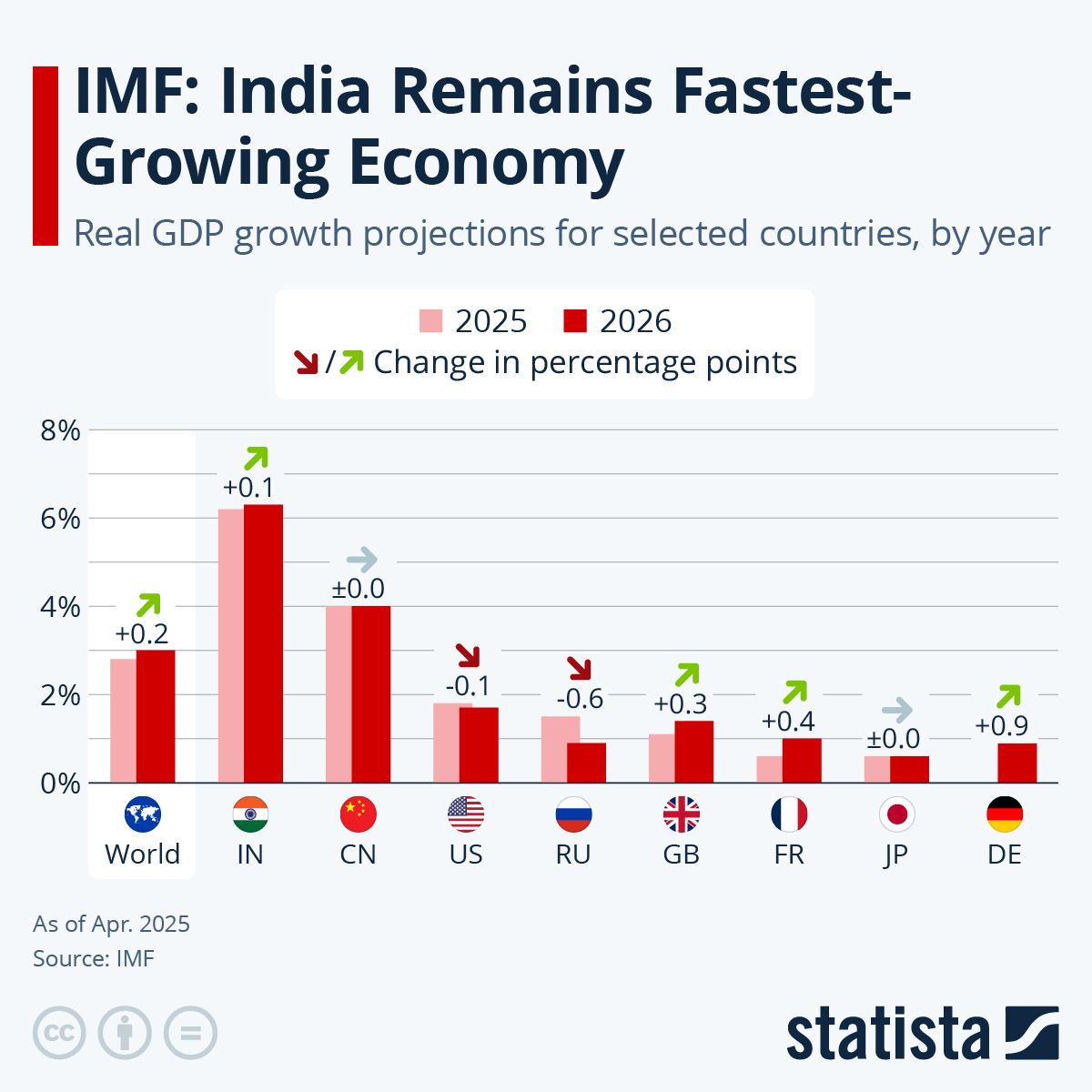
[9/13] The Islamic world, by contrast, remains plagued by military coups, dynastic rule, and theocratic repression. Societies governed by clerics—or beholden to Sharia—continue to enforce apostasy bans, honor killings, gender apartheid, and barbaric medieval punishments. These are not fringe anomalies; they are systemic features. And in many cases, they persist despite immense oil wealth—because wealth without modern institutions does not foster progress; it fuels corruption, repression, and religious absolutism. Intellectual life is stifled. Critical discourse is nonexistent. Censorship reigns. These are not remnants of Western colonialism—they are indigenous pathologies, or more precisely, the lingering effects of Islamic colonialism that erased centuries of diversity across the Middle East and North Africa.
[10/13] The notion that colonialism explains Islamic underdevelopment collapses under scrutiny. If that were true, India would not be a pluralist democracy. Mexico and Brazil would not have industrialized. South Korea would not be a high-tech powerhouse. Yet Pakistan—founded as an Islamic state—descended into a paranoid, militarized theocracy where tourists can be burned alive over vague accusations of blasphemy. Iran, under the Shah, was on the path to secular modernization—until the 1979 revolution transformed it into a clerical theocracy. Afghanistan has become not only the graveyard of empires, but the graveyard of women's rights. Libya, Syria, Yemen, Sudan—the list of failed Islamic states grows longer with each decade.
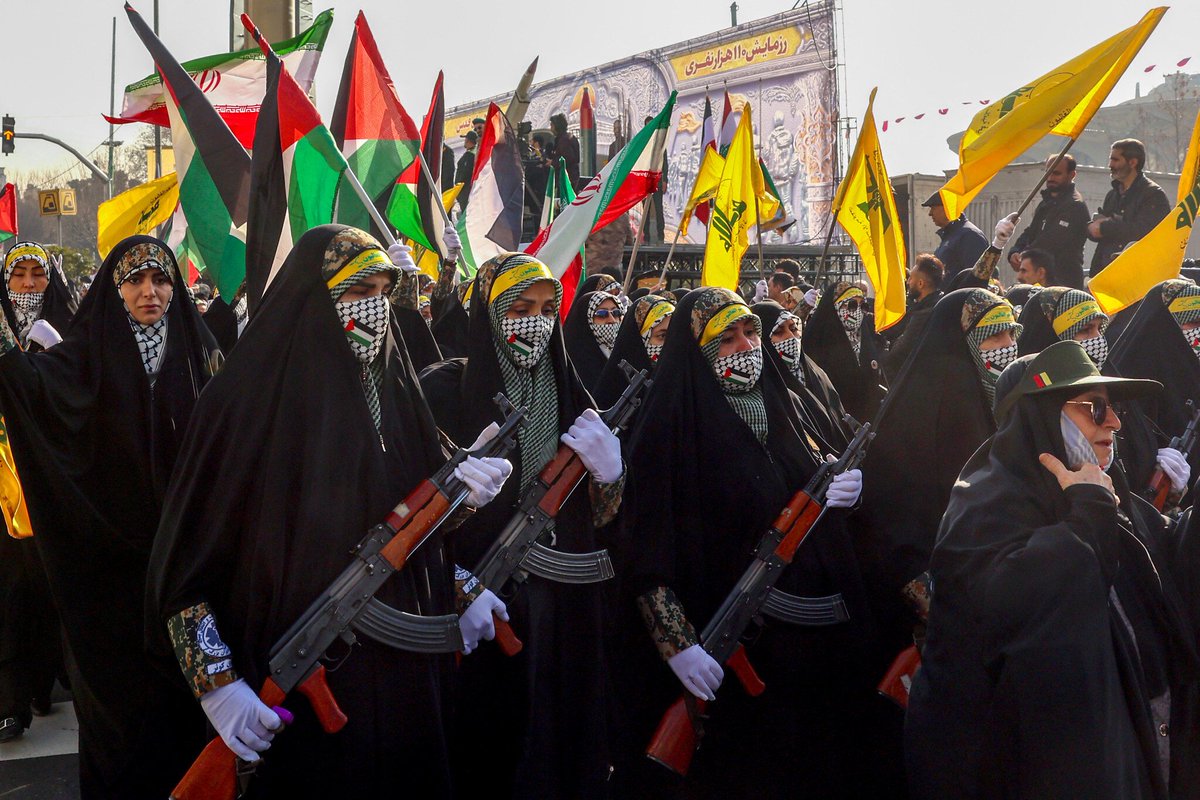
[11/13] The truth is, Islamic civilization was already resistant to reform long before Western colonization—when it was itself an imperial force, colonizing vast territories and enslaving millions of Africans and Europeans with ruthless barbarity. The early Islamic conquests subjugated the great civilizations of Persia, Byzantium, and Egypt, forcibly Arabizing and Islamizing vast swaths of the Middle East, North Africa, and large parts of sub-Saharan Africa. The crises that now cripple the Islamic world are not colonial leftovers—they are embedded in its doctrinal architecture: a rigid, sacralized legal system; clerical domination of civil life; the suppression of independent reasoning (ijtihad); and a pathological cultural code rooted in honor, shame, and obedience.
Even Islam's so-called "Golden Age" was not the triumph of orthodoxy, but of loosely governed, Persianized courts that tolerated philosophical inquiry and absorbed the intellectual wealth of conquered peoples. When the clerics regained control, the gates of critical thought slammed shut—and they have remained shut ever since.
Even Islam's so-called "Golden Age" was not the triumph of orthodoxy, but of loosely governed, Persianized courts that tolerated philosophical inquiry and absorbed the intellectual wealth of conquered peoples. When the clerics regained control, the gates of critical thought slammed shut—and they have remained shut ever since.
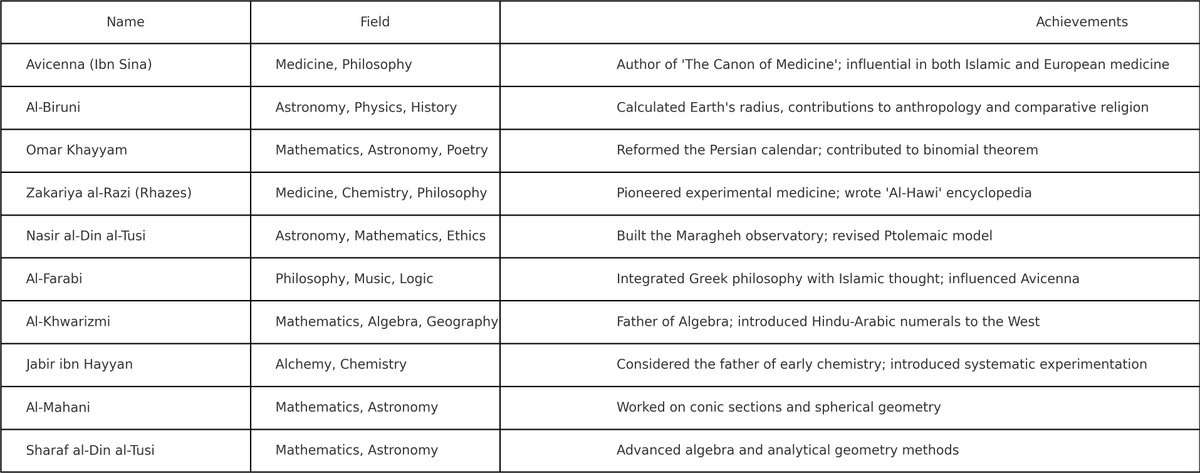
[12/13] Western apologists and postcolonial theorists continue to blame foreign interventions, Zionism, and the legacy of empire for the Islamic world's crises. But self-reflection, the first condition for growth, is ideologically forbidden. The Quran describes the Muslim community as "the best of peoples" (3:110). Failure cannot be internal—so it must be blamed on the West, on Jews, on apostates. Criticism becomes blasphemy; reform becomes treason. And stagnation becomes destiny.
The question is no longer whether Islam needs reform. The question is whether it is capable of it. And more urgently: why do we in the West still pretend otherwise?
The question is no longer whether Islam needs reform. The question is whether it is capable of it. And more urgently: why do we in the West still pretend otherwise?

[13/13] Follow me here on X and subscribe to my Substack for essays that challenge the narrative: solo.to/maralsalmassi
• • •
Missing some Tweet in this thread? You can try to
force a refresh












